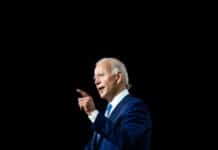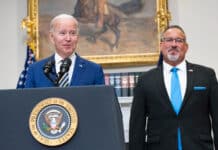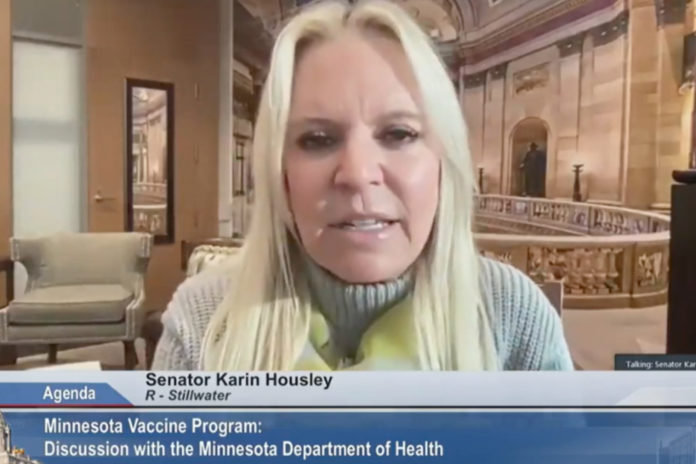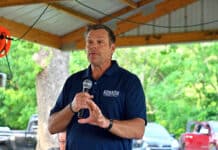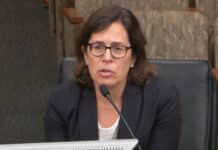After a tumultuous week of debate, Gov. Tim Walz said Thursday that his administration will vaccinate 70% of seniors before moving on to the next phase.
But some Republicans are concerned about the “invasive” questions seniors, and all Minnesotans, must answer before receiving a vaccine.
The ongoing debate over vaccine prioritization and the new Vaccine Connector sign-up form reached a climax Wednesday when Department of Health Commissioner Jan Malcolm testified before the Senate Aging and Long-Term Care Policy Committee, chaired by Sen. Karin Housley, R-Stillwater.
Housley began the hearing by talking through each question on the vaccine sign-up form, calling it a “data-grab.”
Employer, job title, race and ethnicity, gender and sexual orientation, first language, physical and emotional condition, and type of residence are all questions the form asks before requesting age.
“I don’t know why they need to know where I work” in order to get the vaccine, Housley said. “Then we go to ‘describe your gender, male, female, other, prefer not to say.'”
Housley noted that Sen. Carrie Ruud, R-Breezy Point, has heard from citizens in her district who are “quite irate” about being required to answer these questions.
“What I’m trying to figure out is why do you need to know the gender and sexual preferences of seniors to give them a vaccine?” Ruud said in a statement.
“I’ve consistently asked MDH to look at this from a senior’s viewpoint, and it’s obvious from this new Vaccine Connector that this isn’t happening. This whole process has devolved into chaos, yet MDH and the governor continue to expect our seniors to keep up. It’s ridiculous.”
The form also asks what language the user speaks, to which Housley wondered, “Why do you need to know if my first language is Norwegian or Polish? Why does the government need to know this information?”
“Physical, mental, and emotional condition” is yet another required part of the form.
“You want to know if somebody is depressed before they can get the vaccine?” Housley asked. “It’s just so maddening that these questions are even being asked.”
Housley also pointed out that the form requires the user to agree to the information they provide becoming public data.
Malcolm clarified that the data is “not being used for prioritization decisions,” in her words.
“We are using this data to drive communication strategies to help target information to people so they know when they are eligible and where they can go to be vaccinated,” Malcolm said.
“The whole intent here is to be able to use this to communicate with folks who voluntarily sign up to get them information when they are eligible and help connect them with ways to register with their clinics and with their pharmacies,” she continued.
Ruud asked Malcolm “point-blank” why gender identity and sexual preference are necessary questions to answer in order to receive the vaccine.
“Let me clarify. None of the answers on that form are necessary to get a vaccine … it’s data that is useful to know what populations we’re serving or not. But those are not eligibility questions for the vaccine,” Malcolm responded.
“I respectfully disagree that we are not prioritizing our elders,” Malcolm added. “We have made tremendous strides in immunizing in long-term care settings and now in community settings.”
“The program has been chaotic and ever-changing from the beginning,” Housley shot back.
Housley welcomed Walz’s Thursday announcement, but said she has heard from countless seniors across the state “who have been confused by this constantly changing information.”
“For months I have been begging Gov. Walz to put our seniors first in the state’s vaccination efforts,” said Housley. “Today, we finally have a public commitment from the governor that our seniors will be prioritized.”
“This is a step in the right direction, and I’m committed to holding him accountable,” she added. “We need to vaccinate our seniors, but we also need to make sure these confusing messages are NOT sustained in future vaccination plans. Minnesotans deserve better.”
According to a statement Housley released after Wednesday’s hearing, under 15% of Minnesota’s seniors have received both doses of the vaccine.



